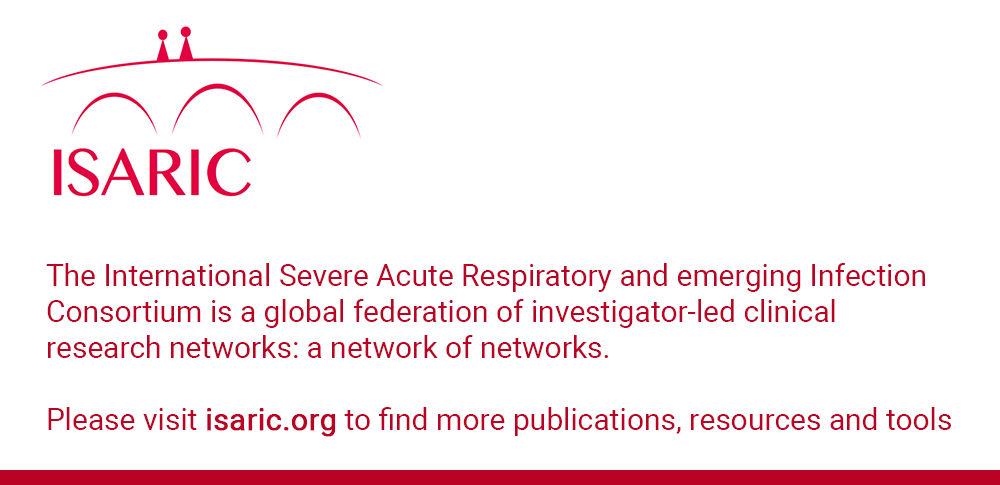
Major infectious disease outbreaks are a constant threat to human health. Clinical research responses to outbreaks generate evidence to improve outcomes and outbreak control. Experiences from previous epidemics have identified multiple challenges to undertaking timely clinical research responses. This scoping review is a systematic appraisal of political, economic, administrative, regulatory, logistical, ethical and social (PEARLES) challenges to clinical research responses to emergency epidemics and solutions identified to address these.
Harmonisation creates opportunities for individual investigators to compare results or collaborate, without applying burdens or obligations. In our experience, the quality and breadth of research is improved by collaborative development and peer review of shared protocols. For example, in the current outbreak, a clinician might design a study to identify risk factors for progression, co-infections, and mechanisms of critical illness. However, clinicians might overlook the need to obtain serum for research groups with the capability to make new assays for seroepidemiology, or peripheral blood mononuclear cells for monoclonal antibody therapeutics during this process. Wide collaboration leads to better, faster science.
Guidelines available early in the covid-19 pandemic had methodological weaknesses and neglected vulnerable groups such as older people. A framework for development of clinical guidelines during public health emergencies is needed to ensure rigorous methods and the inclusion of vulnerable populations.
In an era of precision medicine, it is important to identify the main phenotypes in order to customise therapy in a personalised approach [9]. A variety of proposed anti-viral, anti-inflammatory, anticoagulant and anti-fibrotic strategies may be beneficial or harmful depending on the state of disease. Recognition of different phenotypes of SARS-CoV-2 is therefore critical to clinicians and researchers for timely, effective and safe therapeutic interventions.
Radiological findings from 81 patients with COVID-19 pneumonia in Wuhan, China: a descriptive study
by ISARICA cluster of patients with coronavirus disease 2019 (COVID-19) pneumonia caused by infection with severe acute respiratory syndrome coronavirus 2 (SARS-CoV-2) were successively reported in Wuhan, China. We aimed to describe the CT findings across different timepoints throughout the disease course.
In early February scientists in China, supported by the ISARIC Support Centre at the University of Oxford, launched a placebo-controlled randomised trial of remdesivir in patients hospitalised with COVID-19.
SARS-CoV-2 : First do no harm
by ISARICStudy in sero-epidemiology evaluated four serological tests concluding that a reliable positive for COVID-19 may only be possible after 4 weeks of illness onset. The use of serology for diagnosis of acute disease must be viewed with caution and RT-PCR for virus detection remains the method of choice.
Large, well conducted clinical trials are needed urgently to support guidelines on prevention and clinical management. Open collaboration and data sharing in these trials must be mandated while protecting the rights of participants and patients. This includes research undertaken by the private sector. The article by Nick White from the COVID-19 Clinical Research Coalition, supports WHO’s efforts to counter the COVID-19 pandemic.
Study on a small number of cases of COVID-19 in Europe where ISARIC's Clinical Characterisation protocol was used to build a detailed and comprehensive sampling strategy that enabled the illustration of the different courses of the disease and provide relevant criteria regarding the severity of the disease.
The first results from a randomised controlled trial of a treatment for COVID-19 provide support for larger trials of the drug
This article discusses issues related to regions where critical care units might have limited or no capacity to provide mechanical ventilations. The difference in medical care availability will likely have repercutions on patient outcomes. Full article here: https://jamanetwork.com/journals/jama/fullarticle/2762996
ISARIC associated paper and first study on COVID19 that analyses a number of patients to assess health characteristics that lead to death in hospitalised adults in Wuhan, China. See full article here: https://www.sciencedaily.com/releases/2020/03/200309130109.htm
Bill Gates reflects on good governance during a pandemic and how we can learn from COVID-19 to prevent future pandemics.
Submit an article
We welcome contributions from members. Please submit an article for review by our editorial team.
Upload nowCategories
- Antibiotics (2)
- Asia (4)
- Child Health (1)
- Childhood (1)
- Clinical trials (5)
- Communications (Mesh) (1)
- Community Engagement (3)
- Coronavirus (24)
- COVID-19 (WEPHREN Resources) (14)
- CRF (2)
- Data Management (1)
- Data Management and Statistics (2)
- Disease-specific Guidance (3)
- Epidemics (Mesh) (4)
- Ethics and Informed Consent (1)
- Funding (5)
- Global Health (2)
- Global Health Research Ethics (3)
- Health Inequality (2)
- Health Policy and Management (4)
- Infectious diseases (17)
- Maternal/Fetal health during pregnancy (1)
- Operational/Governance (17)
- Pandemic preparedness (13)
- Pneumonia (3)
- Press Release (2)
- Publications (3)
- Regulations and Guidelines (5)
- Reports (2)
- Resources (11)
- Sampling (2)
- Statistics (1)
- Study Protocols (5)
- Training (9)
- Trial Design (7)
- Trial Management (5)
- Trial Operations (4)
- Vaccine safety (1)
- Workshops (3)